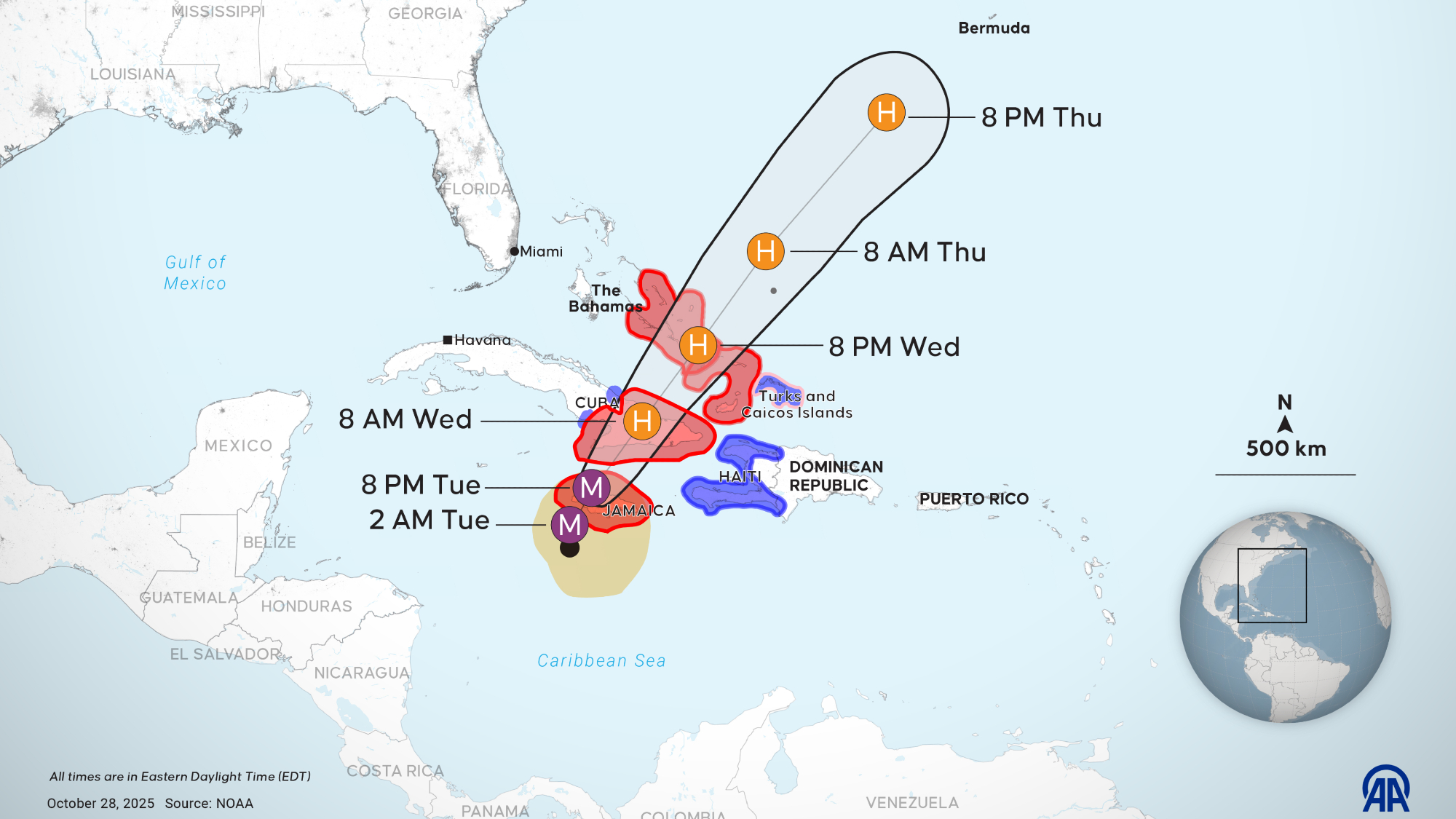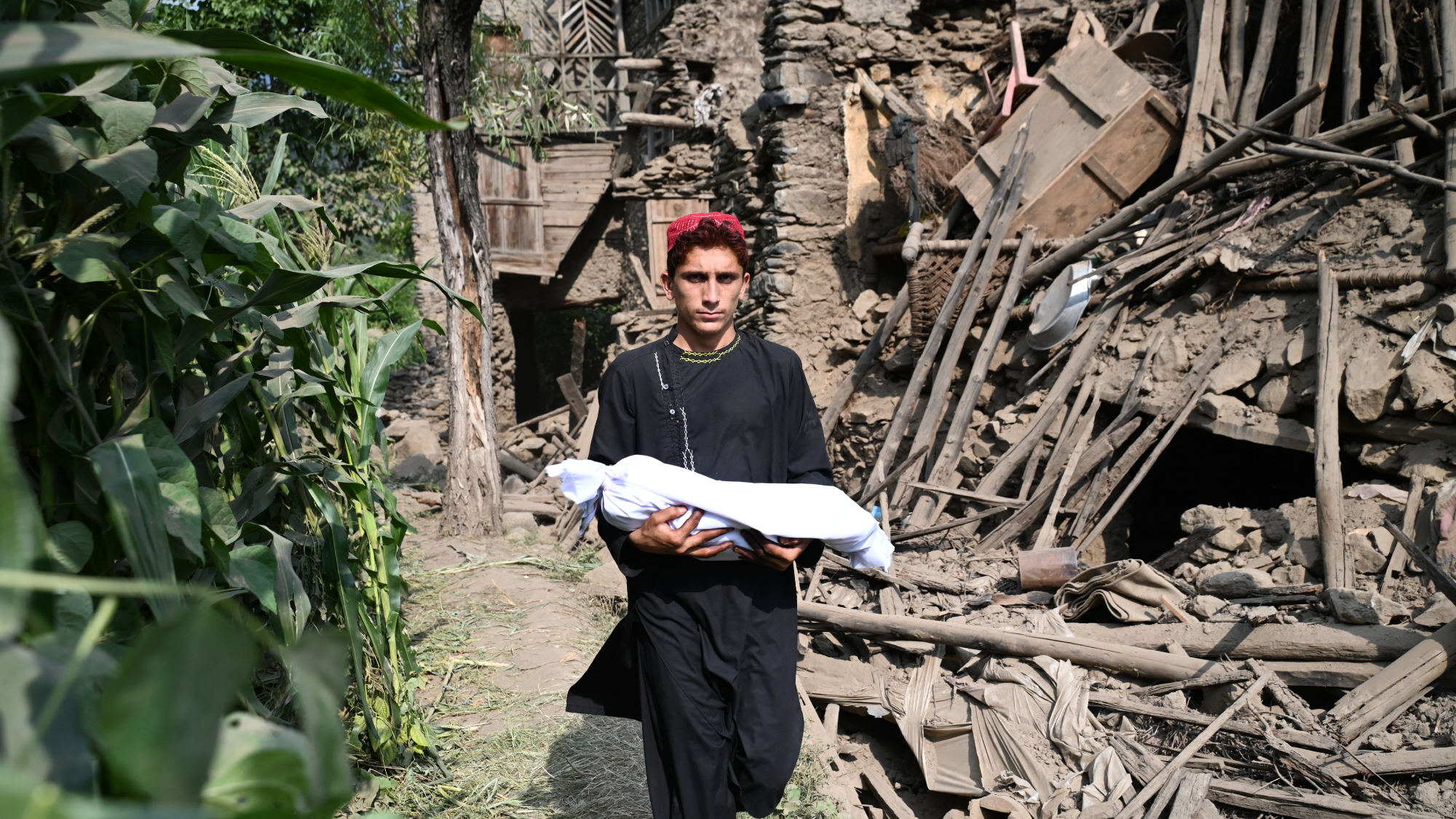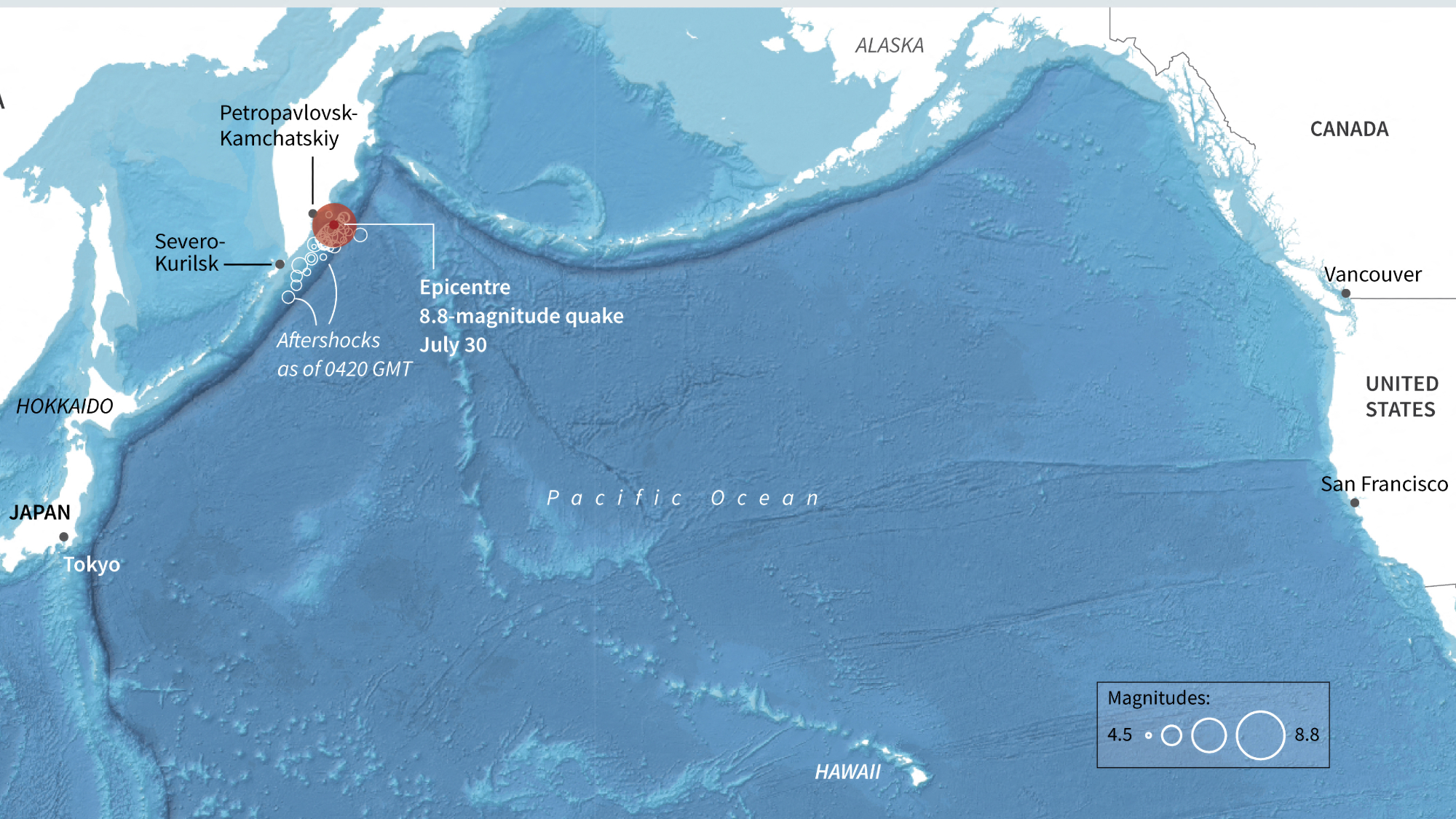The New Orleans levee system, rebuilt after Hurricane Katrina, passed the Hurricane Ida test

A free daily email with the biggest news stories of the day – and the best features from TheWeek.com
You are now subscribed
Your newsletter sign-up was successful
As it barreled into southern Louisiana as a Category 4 storm on Sunday, Hurricane Ida drew comparisons to 2005's Hurricane Katrina, which ravaged New Orleans and overwhelmed its aging levee system exactly 16 years earlier. Ida knocked out power to New Orleans and caused other damage, but the levees, flood walls, and floodgates held and protected the city from the storm surge.
All across Louisiana, "we don't believe there is a single levee anywhere now that actually breached or failed," Gov. John Bel Edwards (D) said Monday. "There were a few smaller levees that were overtopped to a degree for a certain period of time," but the lack of any breaches or failures is "good news." Ricky Boyett, a spokesman for the U.S. Army Corps of Engineers, said the flood protection system "did what it's supposed to do" and "performed as designed."
The Army Corps of Engineers oversaw a $14.5 billion effort to rebuild and improve the New Orleans levees and build out protections for the surrounding suburbs south of Lake Pontchartrain, starting with a 130-mile ring to block storm surges of up to 30 feet, The Associated Press reports. Half of New Orleans is below sea level.
The Week
Escape your echo chamber. Get the facts behind the news, plus analysis from multiple perspectives.

Sign up for The Week's Free Newsletters
From our morning news briefing to a weekly Good News Newsletter, get the best of The Week delivered directly to your inbox.
From our morning news briefing to a weekly Good News Newsletter, get the best of The Week delivered directly to your inbox.
"We have a good system now and I'm pretty confident it worked," Sandy Rosenthal, founder of Levees.org, tells The Washington Post. "We found out what didn't work at horrific human cost. This system is better, stronger, and bigger." But the city is still vulnerable to a hurricane that stalled and dumped large amounts of rain on New Orleans — like Hurricane Harvey in Houston — and the New Orleans system didn't protect other suburbs like LaPlace, whose own levee project isn't scheduled for completion until 2024.
And about 62 percent of Americans who live in communities protected by more than 2,300 miles of levees from California to Florida have seen no overhaul of their flood protection systems in recent years, the Post reports. And maintaining the New Orleans flood protections isn't cheap — it costs about $1 billion a year, Rosenthal says.
Hurricane Katrina left 1,500 people dead in New Orleans. So far, only two confirmed deaths have been tied to Hurricane Ida in all of Louisiana, though that number will almost certainly rise.
A free daily email with the biggest news stories of the day – and the best features from TheWeek.com
Peter has worked as a news and culture writer and editor at The Week since the site's launch in 2008. He covers politics, world affairs, religion and cultural currents. His journalism career began as a copy editor at a financial newswire and has included editorial positions at The New York Times Magazine, Facts on File, and Oregon State University.
-
 The ‘ravenous’ demand for Cornish minerals
The ‘ravenous’ demand for Cornish mineralsUnder the Radar Growing need for critical minerals to power tech has intensified ‘appetite’ for lithium, which could be a ‘huge boon’ for local economy
-
 Why are election experts taking Trump’s midterm threats seriously?
Why are election experts taking Trump’s midterm threats seriously?IN THE SPOTLIGHT As the president muses about polling place deployments and a centralized electoral system aimed at one-party control, lawmakers are taking this administration at its word
-
 ‘Restaurateurs have become millionaires’
‘Restaurateurs have become millionaires’Instant Opinion Opinion, comment and editorials of the day
-
 At least 8 dead in California’s deadliest avalanche
At least 8 dead in California’s deadliest avalancheSpeed Read The avalanche near Lake Tahoe was the deadliest in modern California history and the worst in the US since 1981
-
 Death toll from Southeast Asia storms tops 1,000
Death toll from Southeast Asia storms tops 1,000speed read Catastrophic floods and landslides have struck Sri Lanka, Indonesia, Thailand and Malaysia
-
 Hurricane Melissa slams Jamaica as Category 5 storm
Hurricane Melissa slams Jamaica as Category 5 stormSpeed Read The year’s most powerful storm is also expected to be the strongest ever recorded in Jamaica
-
 Icarus programme – the ‘internet of animals’
Icarus programme – the ‘internet of animals’The Explainer Researchers aim to monitor 100,000 animals worldwide with GPS trackers, using data to understand climate change and help predict disasters and pandemics
-
 Renewables top coal as Trump seeks reversal
Renewables top coal as Trump seeks reversalSpeed Read For the first time, renewable energy sources generated more power than coal, said a new report
-
 China vows first emissions cut, sidelining US
China vows first emissions cut, sidelining USSpeed Read The US, the world’s No. 2 emitter, did not attend the New York summit
-
 At least 800 dead in Afghanistan earthquake
At least 800 dead in Afghanistan earthquakespeed read A magnitude 6.0 earthquake hit a mountainous region of eastern Afghanistan
-
 Massive earthquake sends tsunami across Pacific
Massive earthquake sends tsunami across PacificSpeed Read Hundreds of thousands of people in Japan and Hawaii were told to evacuate to higher ground
